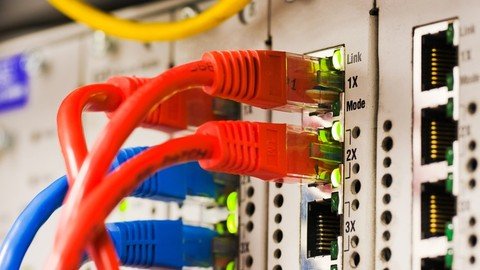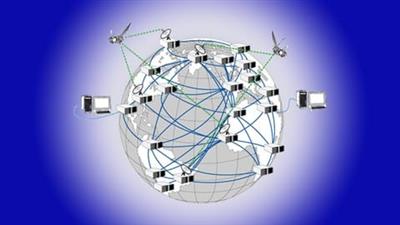Cisco BGP Configuration & Labs 2022- Basic To Advanced!
"softddl.org"
1-08-2022, 10:50
-
Share on social networks:
-
Download for free: Cisco BGP
-

Last updated 11/2021
MP4 | Video: h264, 1280x720 | Audio: AAC, 44.1 KHz
Language: English | Size: 1.26 GB | Duration: 5h 1m
BGP is the toughest protocol to understand, Implement & troubleshoot, this course will make it EASY to learn Cisco BGP

Last updated 11/2021
MP4 | Video: h264, 1280x720 | Audio: AAC, 44.1 KHz
Language: English | Size: 1.26 GB | Duration: 5h 1m
BGP is the toughest protocol to understand, Implement & troubleshoot, this course will make it EASY to learn Cisco BGP
What you'll learn
Have good understanding of BGP Concepts, will be able to configure BGP and troubleshoot it well
You will learn Attributes such as Origin, Weight, Local Preference, MED, Communities.
You will learn the options to change the Routing in BGP
You will get strong understanding of BGP Table
Requirements
Students should have Basic Understanding of Routing Protocols such as RIP, EIGRP and OSPF
Description
BGP Configuration is always a big task to do. This Course has made it very easy for students to understand the BGP Concepts. It has many labs which will eventually make you comfortable working with BGP.Border Gateway Protocol (BGP) is considered a "Path Vector" routing protocol. It is an exterior gateway protocol (EGP) that is used to exchange routing information among routers in different autonomous systems. It is the only protocol which enables Internet to function. So it is very robust and scalable routing Protocol. Once BGP peers form a neighbor relationship, they share their full routing table. Afterwards, only changes to the routing table are forwarded to peers.BGP metric is BGP attributes. It has 3 tables, neighbor table, BGP table and Routing table. The AD (Administrative Distance) for eBGP routes is 20, iBGP is 200. It uses TCP-179. It's Peers use incremental and triggered updates(5 sec interval for IBGP and 30 sec interval for EBGP). It uses AS numbers to keep track of different administrative domains. 1-64511 are public, 64512-65535 are private autonomous numbers.This course has many Labs which will make you very strong and comfortable in Implementing this protocol in your organization or at your home lab. You will get expertise on Attributes of BGP such as Weight, Local Preference, AS Path, MED , ORGIN and Communities. Since It runs the Internet, so we need a protocol which gives flexibility, that is why BGP is used. Only drawback is that It is extremely slow to converge.Many more things like Route Reflectors, Confederation are also covered so that you get complete information about this BGP.Here is the list of topics covered in it1. Simple BGP Configuration2. BGP with Non-Connected Neighbors3. IBGP Vs EBGP4. How to Read BGP Table5. Advertising Subnet in BGP6. Auto Summary in BGP7. BGP Neighbor Adjacency States8. BGP Messages9. Troubleshooting BGP Neighborship10. Troubleshooting BGP Network Advertisement11. Weight Attribute12. Local Preference13. AS Prepend14.Origin Code15. MED (Multi Exit Descriminator)16. BGP Communities17. No-Advertise Community18. No-Export Community19. BGP prevent Transit AS using Filter List20. BGP prevent Transit AS using No-Export Community21. BGP prevent Transit AS using Prefix List22. BGP prevent Transit AS using Distribute List23. BGP Peer Group23. BGP Route-Reflector24. BGP ConfederationThis will definitely be helpful for you. Any feedback- Let me know. I am always available for your help.I have 5000+ satisfied students from 120+ countries.Let's get started.
Overview
Section 1: BGP Labs with Explanation
Lecture 1 Chapter 1 - Simple BGP Configuration
Lecture 2 Chapter 2 - BGP neighborship using Non-Directly-Connected IPs + EBGP Multihop
Lecture 3 Chapter 3 - IBGP Internal BGP
Lecture 4 Chapter 4 - Reading BGP Table Part 1
Lecture 5 Chapter 5 - Reading BGP Table Part 2
Lecture 6 Chapter 6 - Advertising a new Subnet in BGP
Lecture 7 Chapter 7 - Next Hop Self in BGP
Lecture 8 Chapter 8 - Auto Summary in BGP
Lecture 9 Chapter 9 - BGP Neighbor Adjacency States
Lecture 10 Chapter 10 - BGP Messages
Lecture 11 Chapter 11 - Troubleshooting BGP Neighorship
Lecture 12 Chapter 12 - Troubleshooting BGP Network Advertisement
Lecture 13 Chapter 13 - Weight Attribute in BGP
Lecture 14 Chapter 14 - Local Preference in BGP
Lecture 15 Chapter 15 - AS Prepend in BGP
Lecture 16 Chapter 16 - Origin Code in BGP
Lecture 17 Chapter 17 - MED Multi Exit Descriminator
Lecture 18 Chapter 18 - BGP Communities
Lecture 19 Chapter 19 - No-Advertise Community
Lecture 20 Chapter 20 - No-Export Community
Lecture 21 Chapter 21 - BGP Prevent Transit AS using Filter List
Lecture 22 Chapter 22 - BGP Prevent Transit AS using No-Export Community
Lecture 23 Chapter 23 - BGP Prevent Transit AS using Prefix List
Lecture 24 Chapter 24 - BGP Prevent Transit AS using Distribute List
Lecture 25 Chapter 25 - BGP Peer Group
Lecture 26 Chapter 26 - BGP Route Reflector Lab
Lecture 27 Chapter 27 - Confederation in BGP
Section 2: Question & Answer (1-30)
Lecture 28 Interview BGP Q&A (1-10)
Lecture 29 Interview BGP Q&A (11-20)
Lecture 30 Interview BGP Q&A (21-30)
Section 3: Bonus lecture
Lecture 31 Bonus lecture
Students who are aspirants of CCNA CCNP CCIE and those who are looking to work in ISPs should take this course,Students who want to enhance practical knowledge on BGP and improve Implementation and Troubleshooting Skills should take it
Homepage
https://www.udemy.com/course/bgp-practical-labs/
https://rapidgator.net/file/78a480d423db5326f840f5d3ce23553c/reydw.Cisco.Bgp.Configuration..Labs.2022.Basic.To.Advanced.part2.rar.html
https://rapidgator.net/file/92a6c44ebb965fbb2b245573bf0901c0/reydw.Cisco.Bgp.Configuration..Labs.2022.Basic.To.Advanced.part1.rar.html

https://uploadgig.com/file/download/1664BdeBCdb3e727/reydw.Cisco.Bgp.Configuration..Labs.2022.Basic.To.Advanced.part2.rar
https://uploadgig.com/file/download/756810753c3a6408/reydw.Cisco.Bgp.Configuration..Labs.2022.Basic.To.Advanced.part1.rar

https://nitroflare.com/view/7990E00CDEEBB35/reydw.Cisco.Bgp.Configuration..Labs.2022.Basic.To.Advanced.part1.rar
https://nitroflare.com/view/DAD19DA494FE581/reydw.Cisco.Bgp.Configuration..Labs.2022.Basic.To.Advanced.part2.rar
Links are Interchangeable - No Password - Single Extraction
The minimum comment length is 50 characters. comments are moderated





